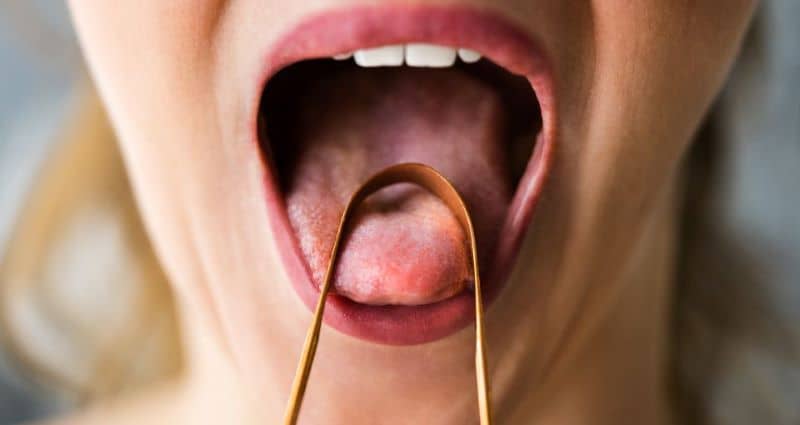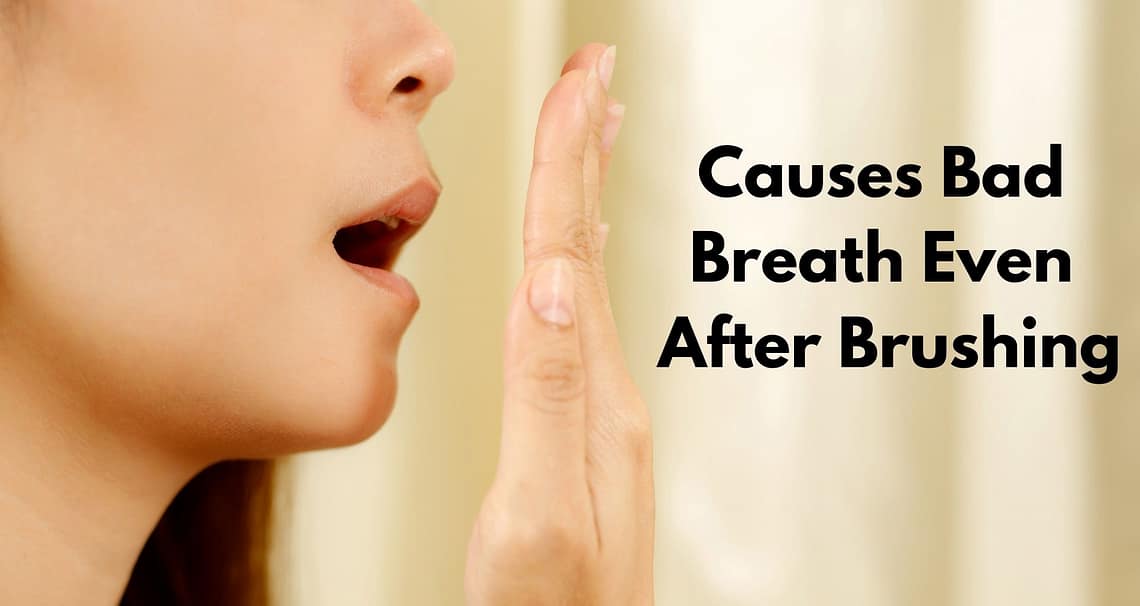Have you ever wondered what cause bad breath even after brushing? In this article, we explore the potential causes of bad breath, or halitosis, that can linger despite your oral hygiene routine.
From the foods you eat to underlying health conditions, we delve into various factors that may contribute to this pesky problem.
By understanding the possible culprits, you’ll be better equipped to tackle bad breath and regain the confidence of fresh, minty breath.
Factors Contributing to Bad Breath
Having bad breath can be embarrassing and can affect your self-confidence. While it is common to experience occasional bad breath, persistent and chronic bad breath can be a cause for concern. There are several factors that contribute to bad breath, ranging from poor oral hygiene to underlying medical conditions. In this article, we will explore each of these factors in detail and discuss how they can contribute to bad breath.
Poor Oral Hygiene
Maintaining good oral hygiene is crucial for fresh breath and overall oral health. Poor oral hygiene can lead to the buildup of bacteria in your mouth, which can produce unpleasant odors. Here are some aspects of poor oral hygiene that can contribute to bad breath:
Inadequate Brushing
Brushing your teeth at least twice a day is the foundation of good oral hygiene. However, if you are not brushing properly or for the recommended duration of two minutes, you may not effectively remove all the plaque and food particles from your teeth and gums. This can lead to the production of foul-smelling sulfur compounds by oral bacteria.
Improper Flossing
Flossing should be an integral part of your daily oral hygiene routine. If you neglect flossing or do it improperly, food particles can remain trapped between your teeth and along the gumline. These particles can lead to bacterial growth and the development of bad breath.
Neglecting Tongue Cleaning
The tongue is a breeding ground for bacteria, debris, and dead cells. If you neglect cleaning your tongue regularly, this buildup can contribute to bad breath. Using a tongue scraper or brushing your tongue gently with your toothbrush can help remove these odor-causing substances.
Skipping Regular Dental Check-ups
Regular dental check-ups are essential for maintaining good oral health. During these visits, your dentist can identify and treat any oral issues that may be contributing to bad breath, such as cavities or gum disease. Skipping these check-ups can allow these problems to worsen, leading to persistent bad breath.
Dry Mouth

Saliva plays a crucial role in maintaining a healthy mouth. It helps cleanse the mouth, neutralize acids, and wash away food particles. However, when your mouth does not produce enough saliva, it can lead to dry mouth, also known as xerostomia. Dry mouth can contribute to bad breath in the following ways:
Saliva and its Role
Saliva not only moisturizes the mouth but also helps control the growth of bacteria and maintains a balanced pH level. When saliva production decreases, bacteria can multiply, leading to the release of sulfur compounds and resulting in bad breath.
Causes of Dry Mouth
Dry mouth can be caused by various factors, including dehydration, certain medications, mouth breathing, and medical conditions. It is important to identify the underlying cause of dry mouth to effectively address the issue and alleviate bad breath.
Impact on Oral Odor
Dry mouth can create an ideal environment for bacteria to thrive and produce foul-smelling compounds. Additionally, the lack of saliva can contribute to the accumulation of plaque and food particles, which can further worsen bad breath. Proper hydration and addressing the underlying cause of dry mouth are crucial in managing bad breath related to this factor.
Dietary Habits
What you eat and drink can have a significant impact on your breath. Certain foods and dietary habits can contribute to bad breath, including:
Strong Odor Foods
Foods such as garlic, onions, and certain spices contain volatile compounds that can be absorbed into your bloodstream and carried to your lungs. When you exhale, these compounds can be released, causing unpleasant breath. While brushing and mouthwash may temporarily mask the odor, the compounds can continue to be released until fully eliminated from your body.
Fasting and Low-Carb Diets
When your body goes into a state of ketosis due to fasting or following a low-carb diet, it breaks down fat for energy. During this process, chemicals called ketones are released, which can result in foul-smelling breath. Proper hydration and maintaining a balanced diet can help alleviate this issue.
Skipping Meals
Skipping meals or prolonged periods of fasting can also contribute to bad breath. When you don’t eat for an extended period of time, your saliva production decreases, allowing bacteria to multiply and produce odorous compounds. It is important to maintain regular meal times and keep your body nourished to minimize the risk of bad breath.
Also Check: A Beginner’s Guide To Using Facial Tools
Tobacco and Alcohol Use
Tobacco and alcohol use are common contributors to bad breath. Here’s how:
Tobacco Products and Bad Breath
Tobacco products contain harmful chemicals that not only stain your teeth and affect your oral health but also contribute to bad breath. Smoking or chewing tobacco can dry out your mouth, reduce saliva production, and increase the likelihood of bacterial growth, leading to persistent bad breath.
Alcohol and Oral Odor
It can also result in bad breath. Alcohol is dehydrating and can decrease saliva production, allowing bacteria to thrive. Additionally, certain alcoholic beverages like wine or beer contain compounds that can be absorbed into your bloodstream and exhaled through your breath, causing an unpleasant odor.

This image is property of pixabay.com.
Untreated Dental Issues
Neglecting dental issues or leaving them untreated can significantly contribute to bad breath. Common dental issues that can cause bad breath include:
Cavities and Tooth Decay
Cavities and tooth decay are caused by bacterial attack on the tooth enamel, resulting in the formation of small holes. These holes can trap food particles, bacteria, and plaque, leading to bad breath. If left untreated, cavities can progress and affect deeper layers of the tooth, exacerbating the problem.
Gum Disease and Gingivitis
Gum disease and gingivitis are characterized by inflammation and infection of the gums. When oral bacteria accumulate and cause an infection, they release toxins that can lead to bad breath. The presence of gum disease or gingivitis should be addressed by your dentist to prevent further oral health complications.
Poorly Fitted Dental Appliances
Ill-fitting dental appliances, such as dentures or dental bridges, can create spaces where food particles and bacteria can accumulate. These trapped particles can produce unpleasant odors, causing bad breath. Regular adjustments and proper cleaning of dental appliances are necessary to prevent this issue.
Sinus and Respiratory Infections
Sinus and respiratory infections can also contribute to bad breath. Here’s how:
Postnasal Drip
Postnasal drip occurs when excess mucus produced by the sinuses drips down the back of the throat. This mucus can mix with bacteria and other substances, resulting in bad breath. Sinus infections or chronic sinusitis can lead to persistent postnasal drip and contribute to bad breath.
Sinusitis
Sinusitis, an inflammation of the sinuses, can cause a buildup of mucus in the sinuses, providing an environment for bacterial growth. The release of bacterial byproducts can contribute to bad breath.
Tonsillitis
Tonsillitis is characterized by inflammation or infection of the tonsils. The presence of infected tonsils can cause bad breath due to the release of foul-smelling substances. Addressing the underlying infection is key in managing bad breath related to tonsillitis.
Bronchitis
Chronic bronchitis, a respiratory condition characterized by inflammation of the bronchial tubes, can lead to the production of excess mucus, resulting in bad breath. Proper management of bronchitis is crucial to alleviate the associated bad breath.
Digestive Problems
Digestive problems can sometimes be a contributing factor to bad breath. Here are some digestive issues that can lead to oral odor:
Acid Reflux (GERD)
Gastroesophageal reflux disease (GERD), commonly known as acid reflux, occurs when stomach acid flows back into the esophagus. This can lead to an acidic taste in the mouth and the release of foul-smelling breath. Treating GERD and managing the associated acid reflux can help improve your breath.
Indigestion
Indigestion, or dyspepsia, can cause symptoms such as bloating, belching, and a sour taste in the mouth. These symptoms can contribute to bad breath. Identifying and addressing the underlying cause of indigestion can help alleviate this issue.
Gastrointestinal Infections
Certain gastrointestinal infections, such as H. pylori infection or intestinal parasites, can lead to bad breath. These infections can disrupt the normal digestive process, resulting in the release of odorous compounds. Proper medical treatment is necessary to address these infections and improve breath odor.
Certain Medications
Some medications can have side effects that contribute to bad breath. Here’s how:
Side Effects of Medications
Certain medications, such as those used for allergies, depression, or high blood pressure, can cause dry mouth as a side effect. As discussed earlier, dry mouth can lead to the accumulation of bacteria and plaque, resulting in bad breath. If you suspect that your medication is causing bad breath, consult your healthcare provider for possible alternatives or strategies to manage this side effect.
Conclusion
Bad breath can be caused by a variety of factors, ranging from poor oral hygiene to underlying medical conditions. Maintaining good oral hygiene, including proper brushing and flossing techniques and regular dental check-ups, is crucial in preventing and managing bad breath.
Additionally, addressing factors such as dry mouth, dietary habits, tobacco and alcohol use, untreated dental issues, sinus and respiratory infections, digestive problems, certain medications, and medical conditions can help improve breath odor.
If you are concerned about your breath, it is best to consult with your dentist or healthcare provider, as they can provide personalized guidance and treatment options to address the underlying causes of your bad breath. Remember, fresh breath not only boosts your self-confidence but also promotes overall oral health.






